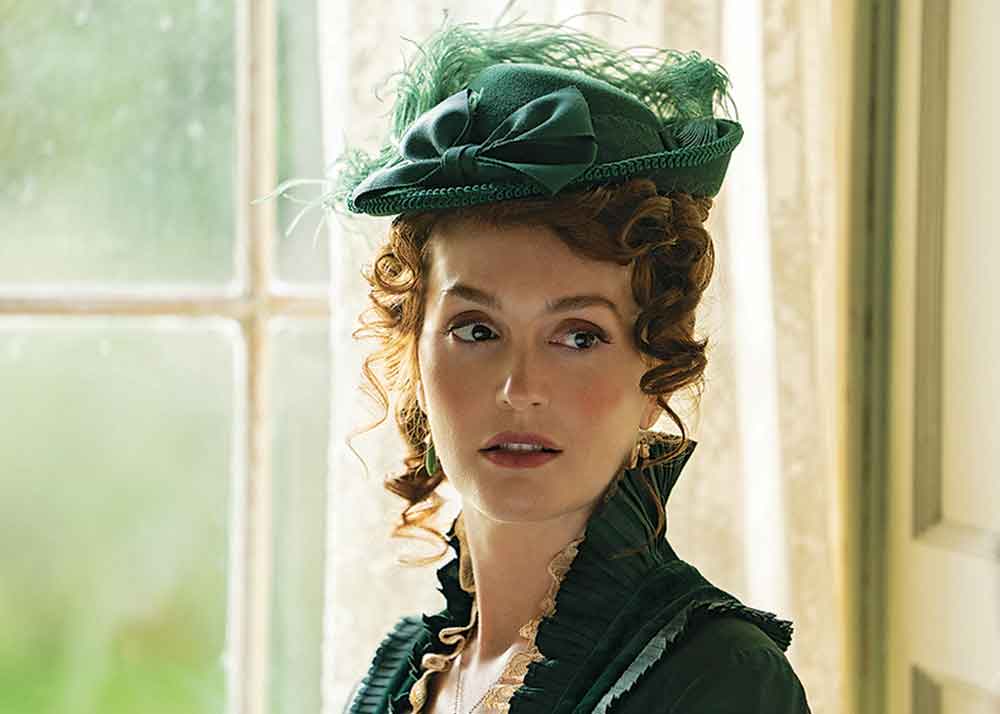A group of brash American socialites continue to shake up the stodgy British aristocracy in the second season of The Buccaneers
The first season of The Buccaneers — based on Edith Wharton’s tome about five young American women shaking up English high society — ended in hopeful chaos. Annabelle “Nan” St. George (Kristine Frøseth) went through with her marriage to Theo, Duke of Tintagel (Guy Remmers), despite being in love with Guy Thwarte (Matthew Broome), in order to save her pregnant sister Virginia “Jinny” (Imogen Waterhouse) from the clutches of her physically abusive husband Lord James Seadown (Barney Fishwick).

James’ brother Richard (Josh Dylan) and his spirited wife Conchita (Alisha Boe) severed financial ties with his family and, despite Conchita’s family riches having vanished overnight, they decided their love was enough for a happy future. Mabel Elmsworth (Josie Totah) broke off her engagement-of-convenience and came out to her sister Lizzy (Aubri Ibrag). With Lizzy’s acceptance, she celebrated her under-the-radar relationship with Honoria (Mia Threapleton), sister of James and Richard. Despite Nan’s great sacrifice, it appeared that the world was finally the oyster of these best friends.

Not for long, though. Hope for these girls and those around them is tested early in the new season, while chaos continues to reign. First on the agenda is the return of Nan’s biological mother, Nell, played by Gossip Girl’s Leighton Meester. For Nan’s de-facto mum, Patti St. George (Christina Hendricks), it is a moment of sheer panic. “She has kept the secret for 20 years and been successful at it. You can only imagine holding that in for so long and being confronted on the biggest day of her daughter’s life, publicly,” says Hendricks. “It is terrifying and I’m like, ‘Get rid of her.’ But I think Patti starts to hear Nell’s words and the blame that is upon her, and she starts to own it and restructure it.”

For Nan, her first encounter with Nell is one that barely registers, as her mind is on her sister and a life-long decision made in haste. “It happens so quickly that I don’t think it’s something that is processed,” says Frøseth. “I do think she loves Theo and thinks that it can work, but it’s all very complicated and not sustainable because it was so forced upon her.” There is an upside, however, to Nan’s nuptials. “After processing everything that’s been happening, it’s like, ‘I didn’t want this power, but if I have this power, how can I use it for good?’” says Frøseth.

Duty vs. desire is not the only big theme in a season that, due to the unfinished nature of Wharton’s source material, is now free to explore new territory as the writers see fit. “All the permutations of motherhood — our characters becoming mothers but also having mothers and working out the background of some of the mothers and the way that that’s impacted the girls and the way that the mothers are learning from the girls and vice versa — is another big theme,” says series creator Katherine Jakeways.

Exploring a particularly difficult iteration of motherhood is Jinny, who — while at the beginning of season two is having something of a vacation from reality — cannot avoid a reckoning forever. “The truth of it is that she doesn’t own that baby,” says executive producer Beth Willis. “Her husband owns that baby, so she can never relax. And her husband, as we know, is not an easy man. We wanted to show the real stakes of it for her.” The story takes more than one frightening turn as Jinny attempts to protect her child. “It feels so sadly contemporary, in terms of how James manipulates the press and the narrative around the situation,” says producer Joe Innes. “Jinny becomes publicly known as a madwoman who has stolen her baby. Of course, the truth is entirely different, but the way he’s a powerful man, who can manipulate the tabloids into supporting his narrative, is something that still happens often today.”

What makes the show feel even more current is the way well-known needle drops are incorporated into the narrative. But the soundtrack is not the main reason these Buccaneers feel contemporary. “The music plays into it, but I think we talk about it as a modern show more than we talk about it as a period show,” says Jakeways. “We are very conscious of the period element of it and we completely embrace the beauty of the costumes and the locations, but in terms of how the characters talk to each other, the way they’re able to be a bit more emotionally articulate about themselves than possibly people would’ve been at that time, we [approach] it like people that we know in real life, in 2025.” This, above all, applies to the unconditional love between the five women. “The beating heart of the show is the female friendship. For us, it is the most important thing about the whole show,” says Willis. “The real love story is these girls. They are each other’s North Star, they’re #endgame, and they always find each other again.”
The Buccaneers, streaming Wednesday, July 9, on Apple TV+
